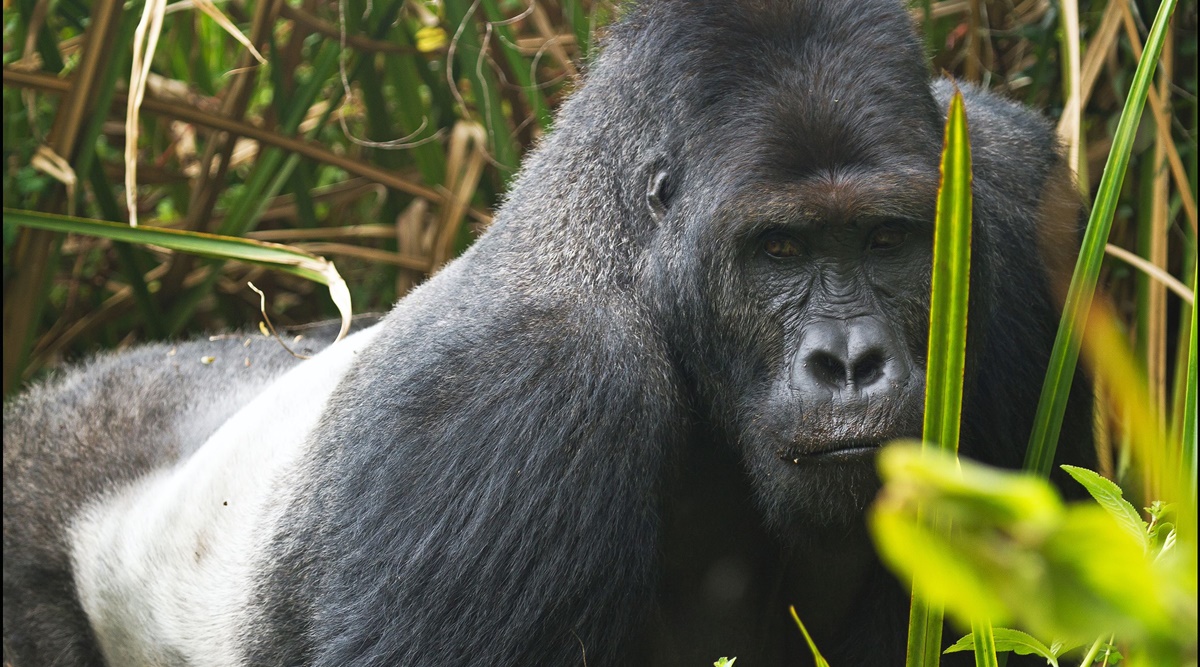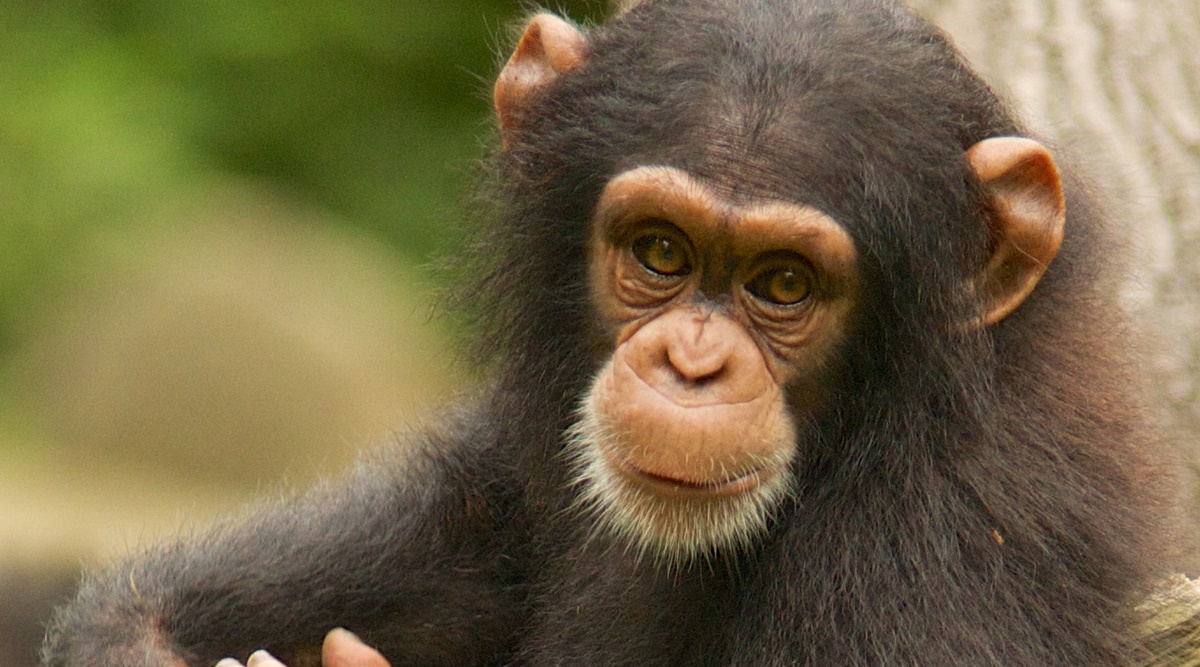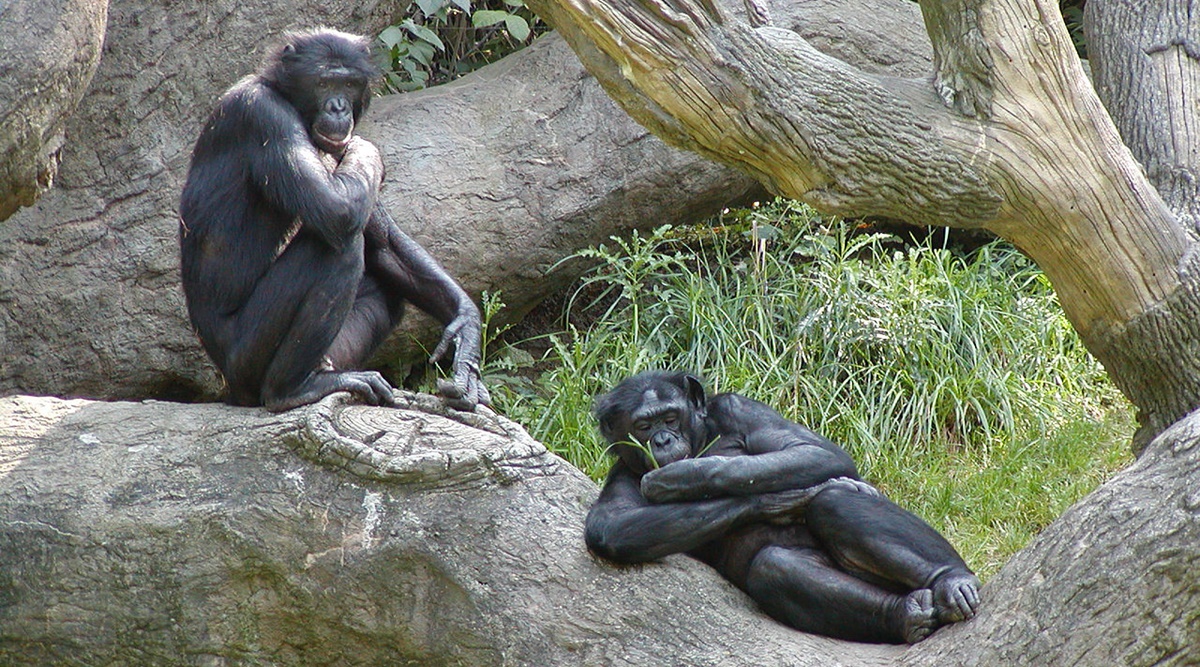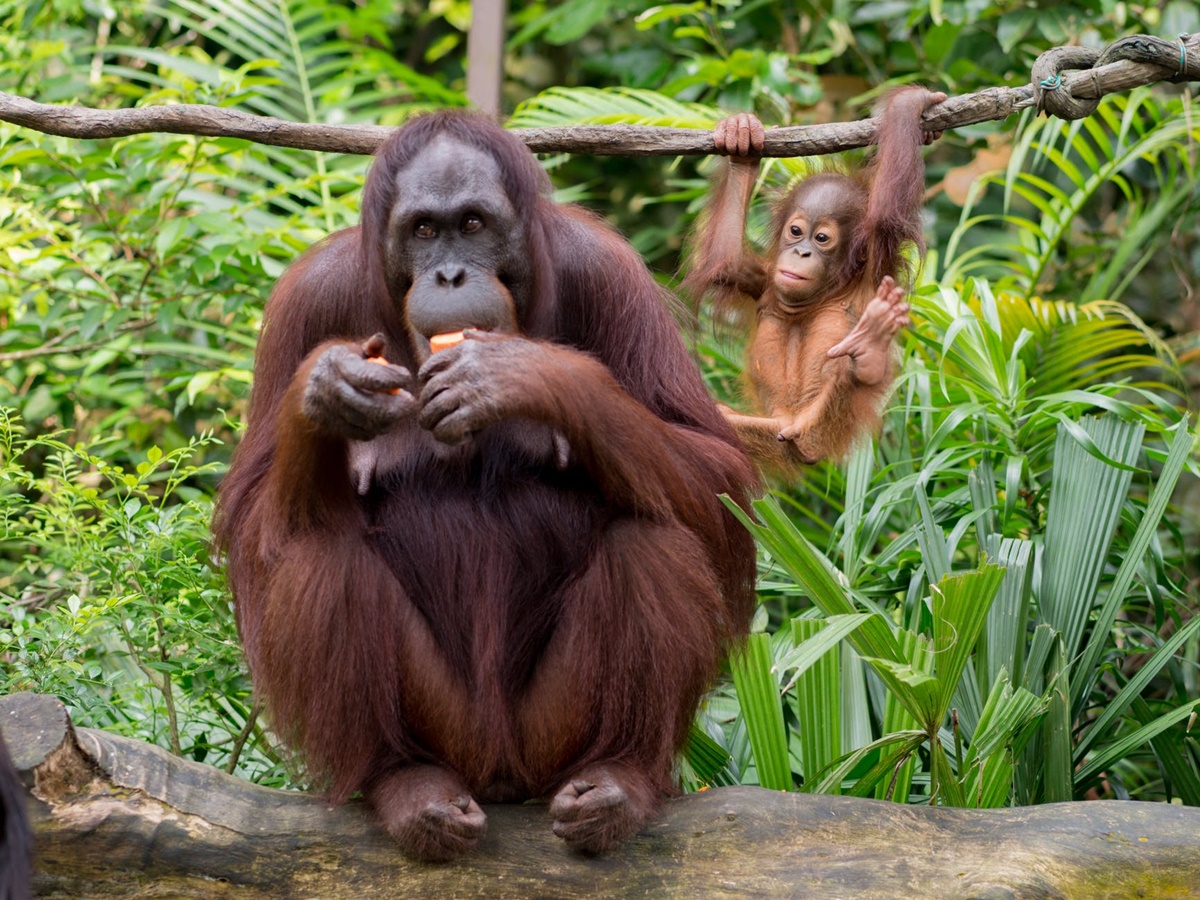When Charles Darwin finally announced to the world that our nearest living relatives were the great apes, civilized society was outraged and roundly pilloried him. I dare say, when the great apes heard about this, they must have been equally appalled. But when there’s a nearly 99 per cent genetic match between us and them (like those outrageous CBSE scores) you really don’t have an argument. The evidence is overwhelming: A few genetic tweaks and, hallelujah, hello gorilla.
 Gorillas invariably remind me of American footballers, writes the author. (Wikimedia Commons)
Gorillas invariably remind me of American footballers, writes the author. (Wikimedia Commons)
I began thinking, suppose I were given the option to choose between the three of them: the chimpanzee, gorilla and orangutan — which great ape would I prefer to be? Actually, all three of them were fortunate, in the sense, they all had fairy godmothers who looked over them for decades (Dian Fossey for the gorillas, Jane Goodall for the chimps and Birute Galdikas for the orangutans), who, even to death, popularized their cause and ensured their survival, So, for me, which was it going to be?
We’ll start off with the largest, and most powerful: the gorilla. Gorillas invariably remind me of American footballers, except they have more sense than to simply lower their heads and charge headlong into each other. But then, the pack leading silverback is usually a magnificent animal, with a 56+++++ inch chest, and that thunderous brow guarding his gentle brown eyes. He moves his bulk with grave dignity, is usually laid-back and relaxed making his ladies feel likewise and will even tickle his children under the chin making them chortle and giggle helplessly. He may extend this affection and protection even towards our own young — as the controversy over Harambe the famous Cincinnati Zoo silverback showed: the debate still rages whether Harambe was going to help the little boy who’d fallen into his enclosure or harm him, but he was shot anyway.
Oh, yes, he can be roused to great rage when he or his ladies and children are challenged or threatened and is a terrifying spectacle as he heaves to his feet, beats thunder on his chest and charges flattening all the foliage in his way. In most cases, the charge is bluff — and carried through just enough to see the challenger turn tail and flee (if you’re the “challenger”, they say don’t run, just bow your head and pretend to eat leaves, signaling submissiveness). But when combat ensues, the results can be bloody and deadly — his canines are like daggers and a thump from his fist will make your head explode.
But mostly all he really wants is to be allowed to eat in peace (through most of the day: he’s vegan), keep an eye on his family occasionally play with his children, and take his family to the best dining outlets in the jungle. A lifestyle worth considering but let’s check out the others now.
 Chimpanzee have a conman’s shrewdness in their eyes as they appraise you, as if figuring out how best to take the mickey out of you (Wikimedia Commons)
Chimpanzee have a conman’s shrewdness in their eyes as they appraise you, as if figuring out how best to take the mickey out of you (Wikimedia Commons)
The chimpanzee: Frankly I find them just too hyper and almost Machiavellian. There’s a conman’s shrewdness in their eyes as they appraise you, as if figuring out how best to take the mickey out of you. And already they seem to be a bit too much like the lumpen elements in every political party: always in a power struggle, ever primed to explode into extreme violence, showing off status by rushing wildly through the forest tearing at the foliage, or beating it up with sticks; throwing stones and hooting and screaming hysterically.
Even groups enjoying a little peace and quiet are liable to explode into incandescent hysteria, hooting, panting and running riot, ruining one’s afternoon siesta without notice. They’re capable of serious violence too: gangs patrol their territories and, God forbid, if they find an interloper — they’re screaming up the trees in pursuit and will rip the trespasser to shreds — male, female or child.
Then how about their “opposite” species — the bonobos? Bonobos separated from regular chimps millions of years ago and took on a hippie lifestyle. Instead of war, they made love — virtually everywhere and in front of everyone, no holds barred. Can you imagine the repercussions of such behavior in this day and age, where holding hands while gazing at the sunset is considered a lynch-worthy offense, Besides, the social media would freak out with comments about your “porno chimp orgies” and so on. So, for me, chimps are a definite no!
 Bonobos separated from regular chimps millions of years ago and took on a hippie lifestyle (Wikimedia Commons)
Bonobos separated from regular chimps millions of years ago and took on a hippie lifestyle (Wikimedia Commons)
Now to the orangutans: those “old men of the forest” that live in Indonesia. I like them! There’s that shining humorous mischief in their eyes, their lazy-daisy way of moving arm over arm as they ascend the trees — never seeming to be in a hurry. They will appraise you with shrewdness and imitate you — chuckling softly to themselves — as they go about the task. You cannot imagine orangutans throwing temper tantrums like gorillas or chimps — even the big, bearded granddaddies would rather intimidate merely by their appearance than get into something as undignified as physical combat.
They seem quietly confident in the power of their arms. Of course, redheads are notorious for their short fuses, but orangutans seem to be the exception to the rule. There’s an element of yogic gentleness about them — all they seem to want is to be left in peace so they can munch their leaves and fruit to their heart’s content.
 Orangutans have an element of yogic gentleness about them (Wikimedia Commons)
Orangutans have an element of yogic gentleness about them (Wikimedia Commons)
Of course, there is a covert reason why I have a soft spot for orangutans. One of my first girlfriends in Delhi was an orangutan called Pinky, who waddled up to me with her keeper, slung her arms around my legs and embraced me. No girl has ever done that! Need I say more?
,